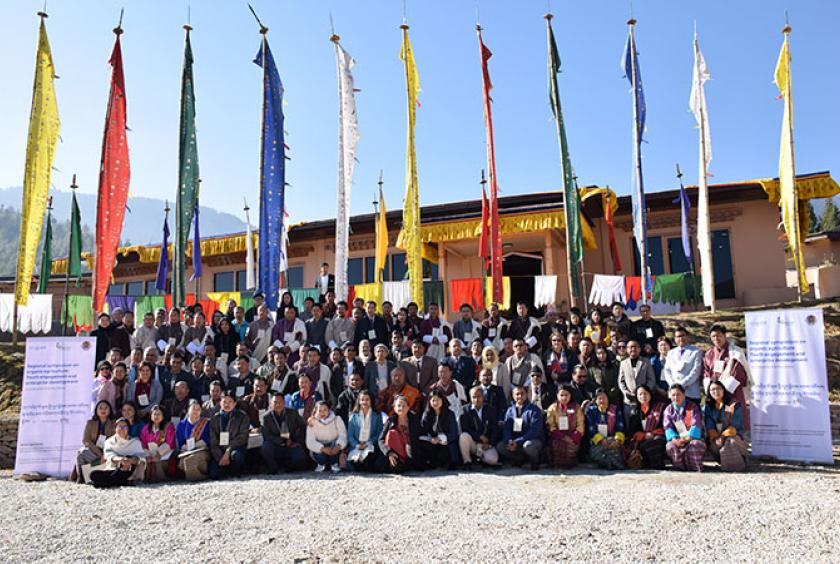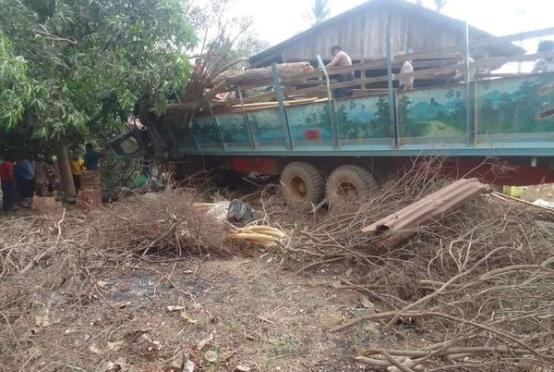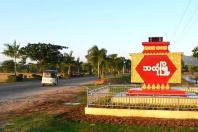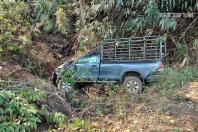
by Chimi Dema
THIMPHU (Kuensel/ANN) - Even if global temperature change remains under 1.5°C to avert the worst impact of climate change, the Himalayan region would be two degrees hotter by 2100.
Even if global temperature change remains under 1.5°C to avert the worst impact of climate change, the Himalayan region would be two degrees hotter by 2100.
With rising temperatures, about 36 percent of the glaciers in the region will be lost by the end of the century. This is according to a study conducted by Kathmandu-based International Centre for Integrated Mountain Development (ICIMOD).
From shifting weather patterns that threaten food production to rising sea levels that increase the risk of catastrophic flooding, the impacts of climate change are global in scope and unprecedented in scale.
Climate change and other environmental and socioeconomic drivers of change are testing the resilience of ecosystems and communities in the Hindu Kush Himalaya (HKH), said Nand Kishor Agarwal, an official with ICIMOD. “And if further changes happen in the earth’s climate, the region will suffer the most.”
Even a slight climatic change could affect more than a billion people downstream who depend on the Himalayan Mountains for freshwater, energy and other ecosystem services.
To help smallholder farmers in the Himalayan Mountains adapt better to climate change, Nand Kishor Agarwal said that organic agriculture was the best solution.
While sustaining the health of soils and ecosystem, organic agriculture also contributes to mitigating climate change and enhancing rural livelihoods by increasing soil’s capacity for carbon sequestration. Soil itself is the biggest store of carbon.
The Hindu Kush Himalayan countries have great potential for organic agriculture. The eight HKH countries are Afghanistan, Bangladesh, Bhutan, China, India, Myanmar, Nepal and Pakistan.
According to the department of agriculture, the ministry of agriculture and forests (MoAF), Bhutan’s soil has a carbon content of 70 to 100 kilogrammes for a hectare.
Programme manager with National Organic Flagship Programme, Kezang Tshomo, said that as agriculture farms in the country were usually small in scale, organic agriculture could prove efficient in terms of soil management and financial returns.
But despite the growing demand in both national and international markets for the region’s organic products, the officials said that the promotion of agriculture in the HKH faced numerous challenges owing to inadequate awareness and marketing mechanisms for organic products, technical and financial services, quality inputs and policy support.
Given the need for development of strategies to enhance the knowledge and understanding of organic agriculture systems, promote product-marketing mechanisms in the mountain context, and to foster partnerships that promotes gender-responsive organic agriculture, the ICIMOD in collaboration with the Agriculture Research and Development Centre, Yusipang, MoAF is organising a two-day regional symposium on “Organic agriculture:Youth engagement and enterprise development” from yesterday in Paro.
The symposium is a part of ongoing regional project: ICIMOD’s Resilient Mountain solutions (RMS).
Deputy Director General of ICIMOD, Eklabya Sharma (PhD), said that apart from looking into high yield crops, the RMS initiative was also exploring innovations related to improving soil fertility and conserving water resources in order to promote the adoption of safe food farming practices in the HKH.
“This will help farmers meet the growing market demand for safe food while also ensuring better nutrition for their families,” he said. In particular, he said that RMS was working with Bhutan to enable the growth of organic agriculture in Bhutan.
The initiative is also being implemented in four other ICIMOD’s regional member countries including Bangladesh, Myanmar, Nepal and Pakistan.
To engage more youths into organic farming and enterprise development, Eklabya Sharma said that the ICIMOD’s focus was on helping the governments to prepare guidelines and also develop appropriate institutional mechanisms and innovative project and programme management structures.
Today, only 263.59 acres of land are certified for organic agriculture in the country. Fifteen products including garlic, potato, and carrot from Gasa, green tea from Trongsa and corn flower from Punakha, among others were certified organic.
Currently, only three retailers and a exporter is involved in organic production and marketing.
Meanwhile, the representatives from government agencies, climate and organic agriculture experts from across the HKH and abroad, certifying agencies and business investors are participating in the symposium.
The country targets to achieve 100 percent organic farming by 2035.















